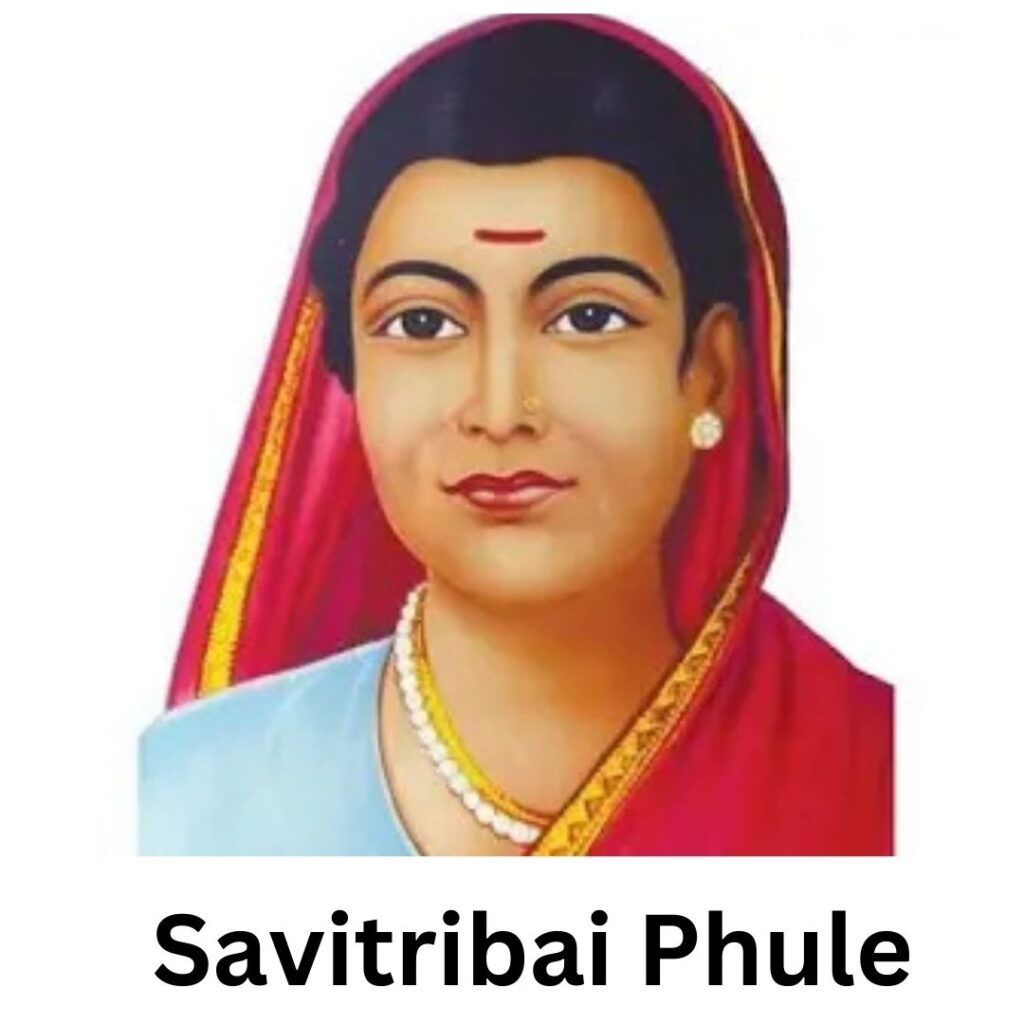A Trailblazer in Social Reform and Women’s Education
Throughout the 1800s, Savitribai Phule was a pioneer in India, fighting for women’s rights and education. Her life narrative is one of tenacity, willpower, and a steadfast dedication to social justice. Millions of people are still motivated by Savitribai’s accomplishments as one of the first supporters of girls’ education in India.
Early Years
Savitribai was born in Naigaon, Maharashtra, on January 3, 1831, into a lowly family. At the age of nine, she married Jyotirao Phule, starting a collaboration that would change Indian culture. Jyotirao saw Savitribai’s talent and ensured she received an education, which was uncommon for women of that period. He taught Savitribai to read and write, preparing her for her future as a reformer.

The Struggle for Education Savitribai Phule
Pune’s first school for females was established in 1848 by Savitribai and Jyotirao at a time when it was frowned upon to educate women. Despite heavy criticism, Savitribai became the school’s first teacher, defying social standards. People would throw stones and mud at her, so she would frequently bring an additional sari on her way to school.
Savitribai persisted in spite of these obstacles. The Phules eventually founded a number of schools with the goal of educating underprivileged groups, such as women and Dalits. Their work established the groundwork for India’s comprehensive educational system.
Supporting the Rights of Women
Savitribai did more than just teach. She fought tenaciously for women’s rights, tackling caste prejudice, child marriage, and widowhood. In 1852, she founded the “Mahila Seva Mandal,” a women’s rights organization that encouraged and let women to express themselves freely.
Savitribai also devoted her life to improving the plight of widows, many of whom were socially excluded. She started a shelter house to give widows and their children a safe place to start anew. She was a ray of hope for repressed women because of her progressive views against the Sati and other antiquated customs.
Contributions Throughout the Epidemic of Plague
Savitribai and Jyotirao led relief efforts when Maharashtra was hit by the bubonic plague in the 1890s. They frequently put their own lives in danger to help the community by establishing care facilities for impacted people. Regretfully, Savitribai died on March 10, 1897, after catching the illness while assisting a patient. She continues to show her kindness with this noble gesture.
Legacy
Savitribai Phule’s legacy is one of bravery, kindness, and change. In addition to defying social expectations, she cleared the path for future generations to envision a more just society. She is now hailed as a social reformer and a pioneer in women’s education.
In Maharashtra, her birthday, January 3, is celebrated as “Balika Din” (Girls’ Day) in recognition of her contributions to girls’ education. Her spirit will continue to inspire change because of the statues, organizations, and universities named in her honor.
To sum up
Savitribai Phule’s life teaches us the importance of upholding moral values in the face of adversity. Her unwavering pursuit of equality and education changed Indian society and the lives of many people. As we celebrate her achievements, let’s strive to maintain her vision of an equitable and welcoming world.
Throughout the 1800s, Savitribai Phule was a pioneer in India, fighting for women’s rights and education. Her life narrative is one of tenacity, willpower, and a steadfast dedication to social justice. Millions of people are still motivated by Savitribai’s accomplishments as one of the first supporters of girls’ education in India.
Early Years
Savitribai was born in Naigaon, Maharashtra, on January 3, 1831, into a lowly family. At the age of nine, she married Jyotirao Phule, starting a collaboration that would change Indian culture. Jyotirao saw Savitribai’s talent and ensured she received an education, which was uncommon for women of that period. He taught Savitribai to read and write, preparing her for her future as a reformer.



